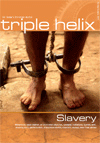This book aims to present an overview of religious groups to help deliver sensitive care to patients. The first three chapters provide a more theoretical justification as to why this should be necessary in contemporary Britain. The rest of the volume is a well-organised list of stereotypical attitudes and behaviour.
Each faith group is examined according to 17 reference points, for example background and beliefs, religious obligations, food and dress. The book thus aims to prevent insensitivity in dealing with individuals from particular backgrounds. This aim is laudable but the inevitable breadth of commitment within each religious group runs the risk of treating all adherents as if they were zealous. I am puzzled why Jehovah's Witnesses and Rastafarians are included within the 'other groups' section of the chapter concerning Christians, having been described as 'distinct from mainstream Christianity'.
Although I will not rush into buying a copy for my practice library, it could be helpful on a hospital ward.
































